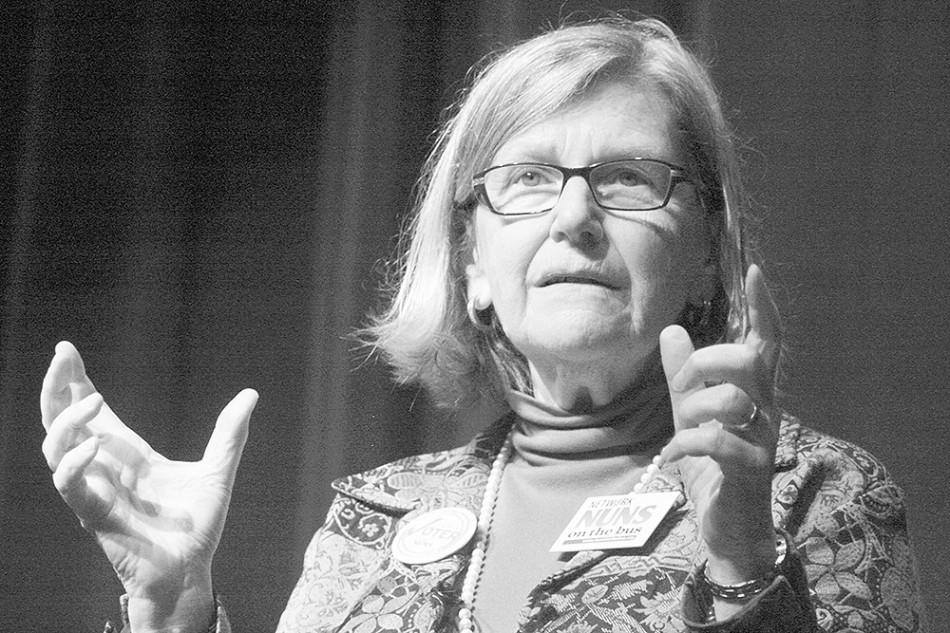Mission House Lecture: Nun discusses wage gap
Sister Simone Campbell is a popular advocate for policies aimed at the lower class.
November 13, 2014
According to the New International Version of the Bible, 1 Corinthians 12:27 states, “Now you are the body of Christ, and each of you is a part of it.” After reading that verse, Sister Simone Campbell was immediately convinced that, in the metaphorical body of the Christ, she is most definitely the stomach acid.
“It’s mildly annoying in large quantities but vital for digestion,” Campbell said.
On Nov. 4, Campbell took the stage of the Bradley Theatre to present the annual Mission House Lecture but “cannot stand being behind a podium” and instead opted to speak from the very front of the stage.
Continuing her interpretation of the body of Christ, the nun said, “Faith says we are one body—connected. Most religions have the idea that we are best in community.”
While Campbell is a self-proclaimed advocate for unity, she admitted to feeling tension between herself and wealthy individuals who comprise the “1 percent” but says it was a “sin” that she had to overcome.
“If I’m at odds with the God in them, then I am at odds with the God in me,” Campbell said.
For a while, the nun felt particularly at odds with Rep. Paul Ryan, a fellow Catholic, and even believed that he was “a mistake of God.” Eventually, she learned to appreciate the God in him and accept him as a part of the body of Christ.
“As for what part, I have some ideas,” Campbell joked.
For the majority of her presentation, Campbell used seven volunteers from the audience to create a “human bar graph” meant to illustrate the changes in income that Americans have experienced over the last 20 years. According to Campbell, between 1979 and 2009, the income of the top 20 percent went up by 50 percent but the income of the lower class went down by 7 percent.
Campbell detailed her belief that the wage gap between the highest and lowest earners contributes to a lack of connectivity and understanding among people.
“It’s not that these people (the top earners) are bad,” Campbell said. “They are just separate from the rest of us.”
According to Campbell, a major problem is the lack of policies that take care of the “100 percent.” She believes that the flat minimum wage is something that no one can live on and advocates raising it. Additionally, she is not pleased that taxes on interests and dividends were reduced for the “wealthy.”
“The lower 45 percent aren’t lazy,” Campbell said. “No one is a mistake of God. We need to care for the lowest to the highest. We need to care for the 100 percent.”


